Abstract
In a large, geographically defined population of children a number of family factors in addition to social class, determined by the father's occupation, were recorded by health visitors and school nurses with routine responsibility for these children. The quality of the children in normal schools was assessed in terms of nonverbal IQ and height at the ages of 5 and 10 years, and of behavior as reported by the teacher at the age of 10 years. By analysis of variance the sum of the independent effects of the other family factors greatly outweighed that of occupational social class, except in the case of the IQ at 10 years. The most important of the other family factors was the quality of the mother's care of her child during the first 3 years of life.
Full text
PDF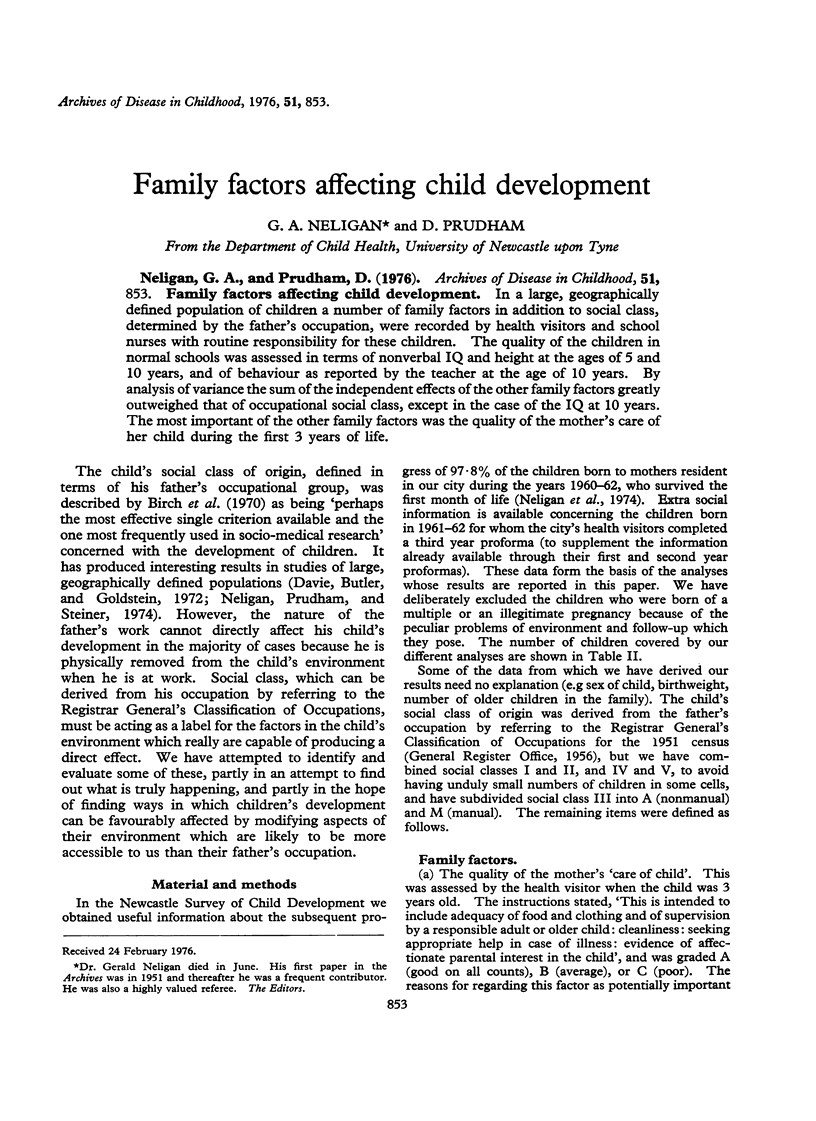
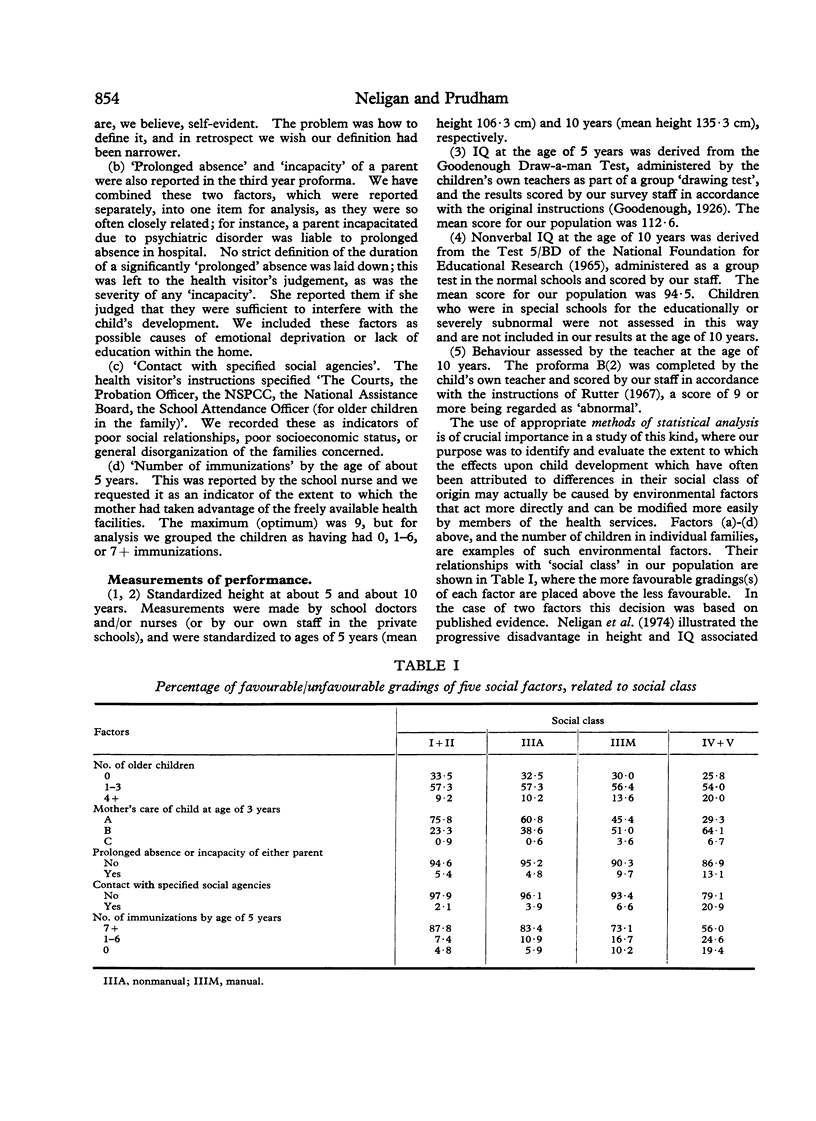
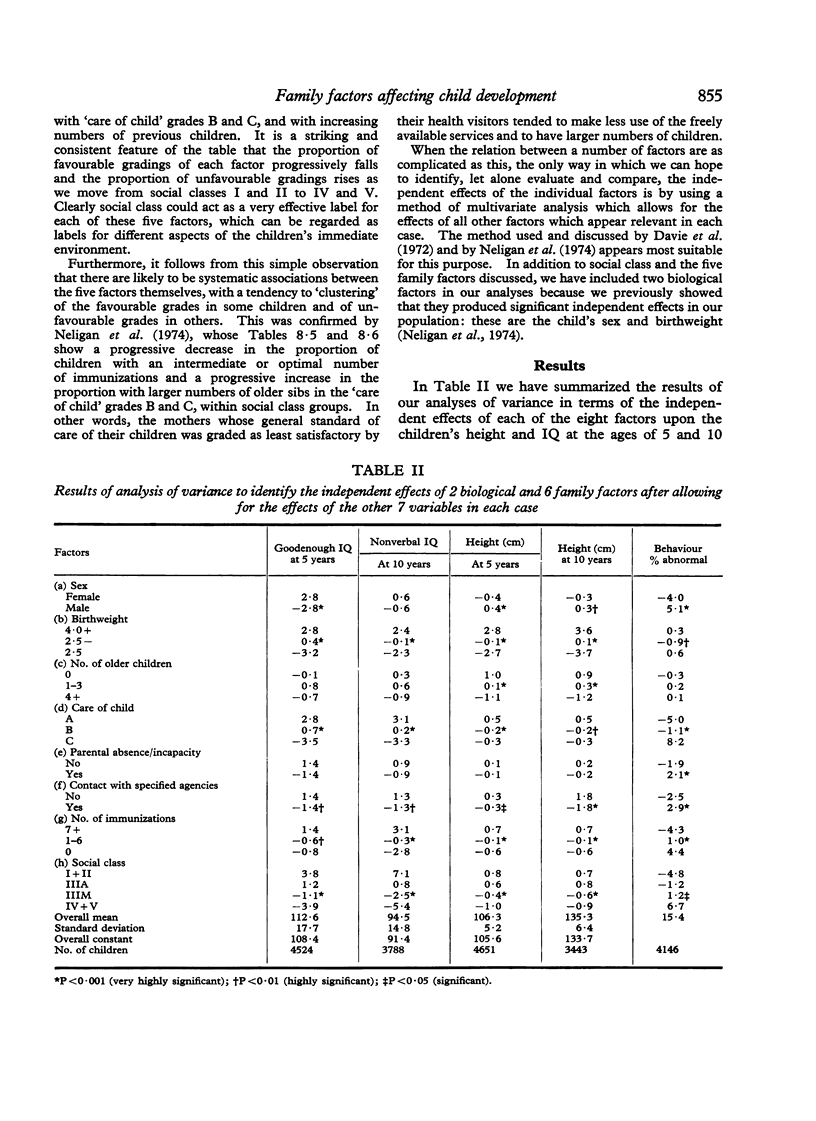
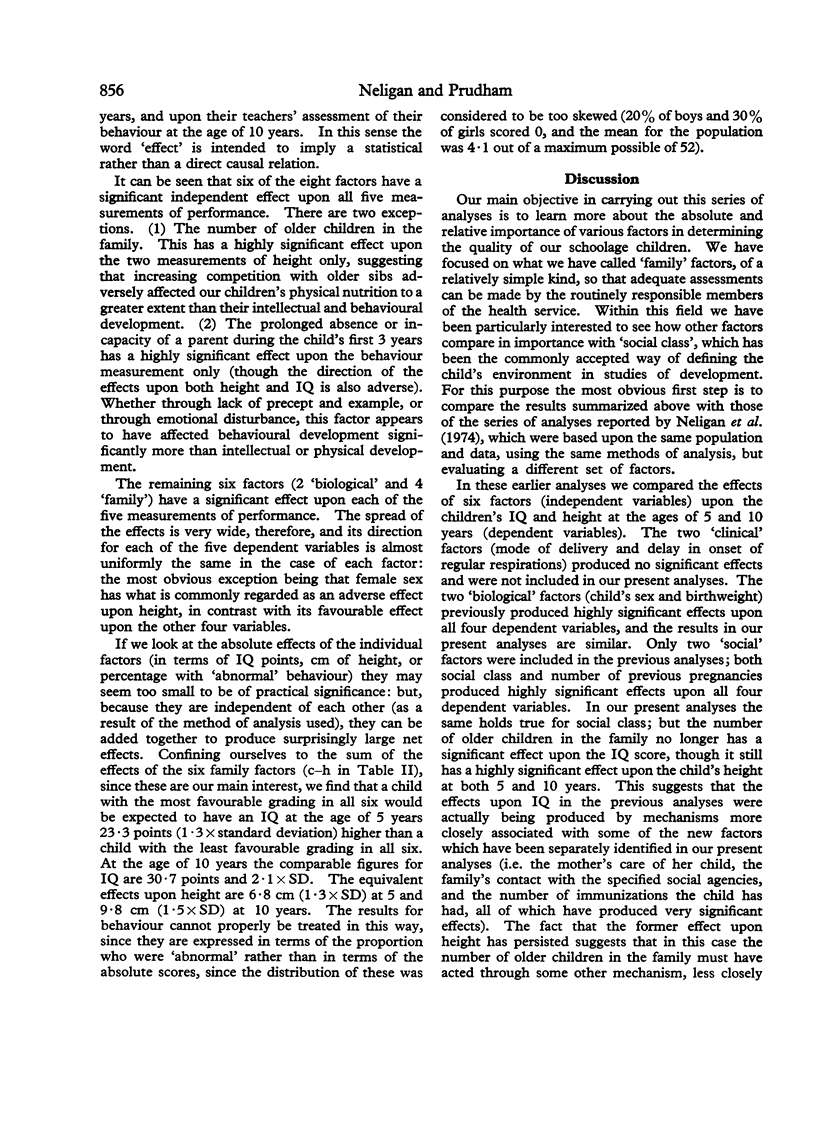
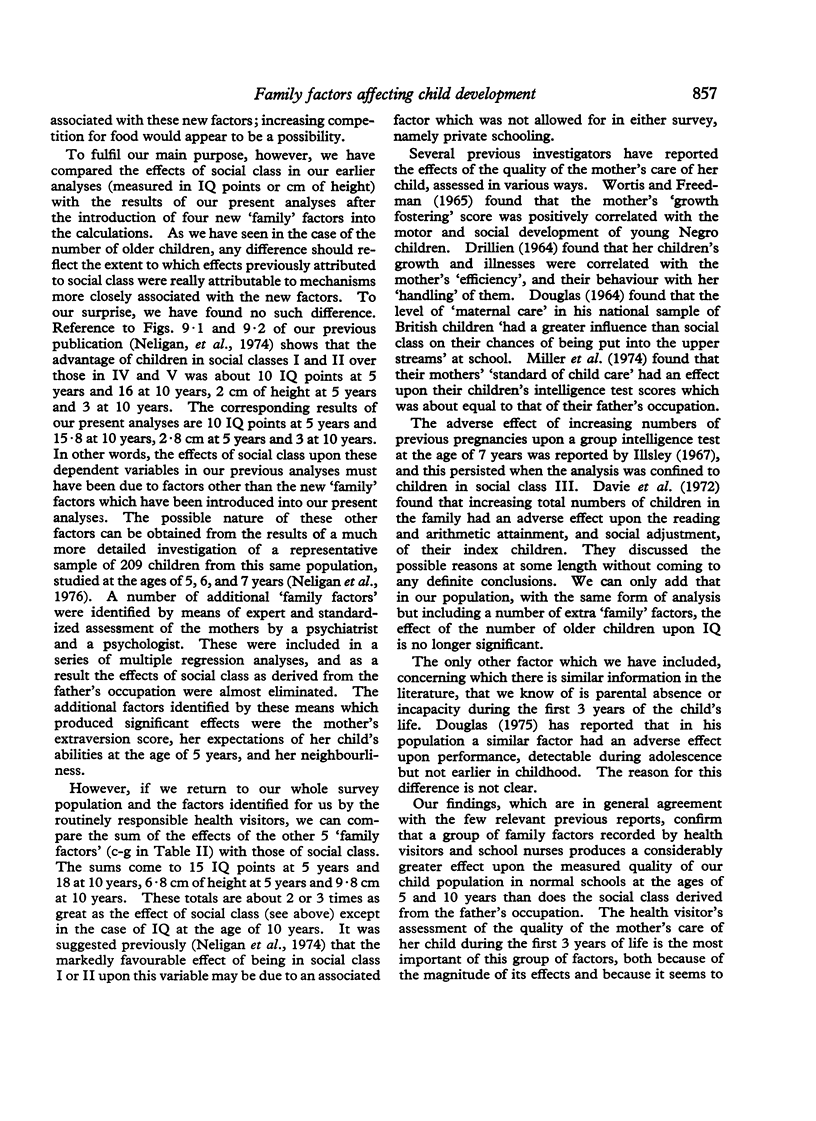
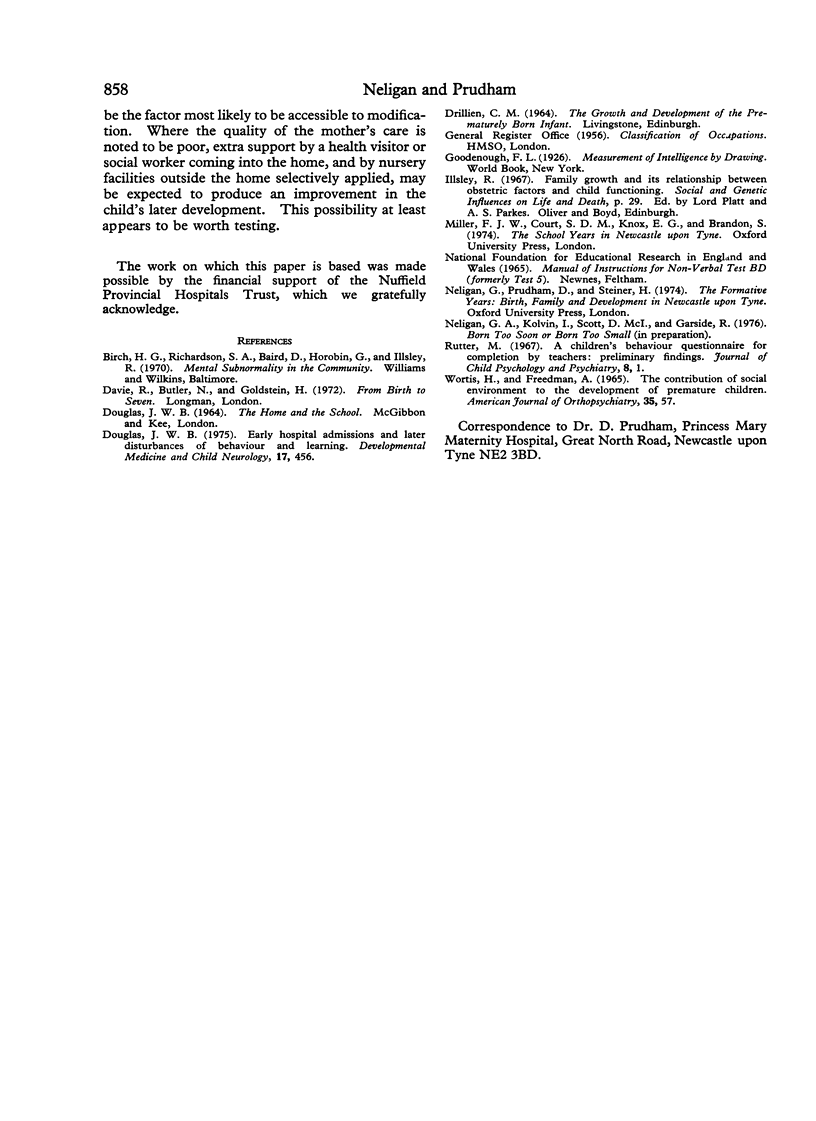
Selected References
These references are in PubMed. This may not be the complete list of references from this article.
- Douglas J. W. Early hospital admissions and later disturbances of behaviour and learning. Dev Med Child Neurol. 1975 Aug;17(4):456–480. doi: 10.1111/j.1469-8749.1975.tb03497.x. [DOI] [PubMed] [Google Scholar]
- Rutter M. A children's behaviour questionnaire for completion by teachers: preliminary findings. J Child Psychol Psychiatry. 1967 May;8(1):1–11. doi: 10.1111/j.1469-7610.1967.tb02175.x. [DOI] [PubMed] [Google Scholar]


